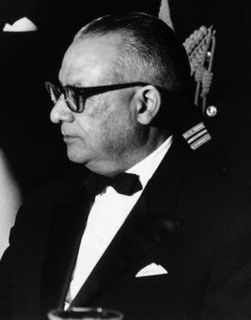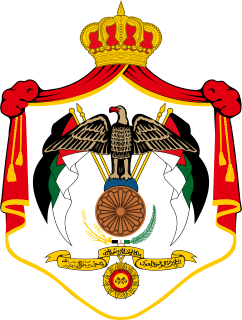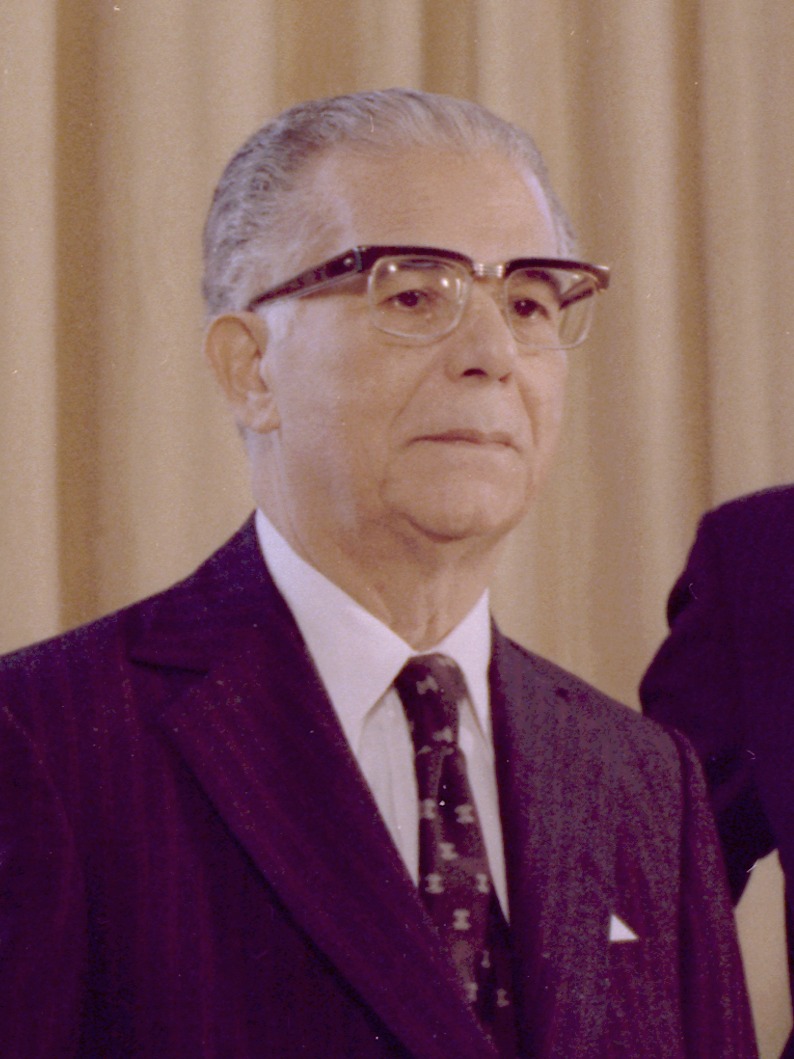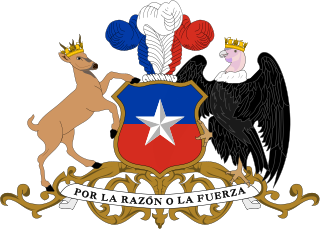
Elections in Antigua and Barbuda take place in the framework of a parliamentary democracy.
The Saint Kitts and Nevis Labour Party (SKNLP) is a centre-left political party in Saint Kitts and Nevis. It is currently in opposition in the country after winning three of the eleven seats in the 2015 general election.
The Liberal Party, commonly known as the Blue Party was a political party in Paraguay, ruling the country for most of the period between 1904 and 1940.

General elections were held in Venezuela on 1 December 1963. The presidential elections were won by Raúl Leoni of Democratic Action, who received 32.8% of the vote, whilst his party won 66 of the 179 seats in the Chamber of Deputies and 22 of the 47 seats in the Senate. Voter turnout was 92.3% in the presidential election and 90.8% in the Congressional elections.

General elections were held in Venezuela on 7 December 1958. The presidential elections were won by Rómulo Betancourt of Democratic Action, who received 49.2% of the vote, whilst his party won 73 of the 132 seats in the Chamber of Deputies and 32 of the 51 seats in the Senate. Voter turnout was 94.4% in the presidential election and 92.1% in the Congressional elections.

The Revolutionary Febrerista Party is a democratic socialist party of Paraguay.

General elections were held in Mexico on 5 July 1970. The presidential elections were won by Luis Echeverría Álvarez, who received 86.0% of the vote. In the Chamber of Deputies election, the Institutional Revolutionary Party won 178 of the 213 seats, as well as winning all 64 seats in the Senate election. Voter turnout in the legislative elections was 64.4%.

General elections were held in Venezuela on 3 December 1978. The presidential elections were won by Luis Herrera Campins of Copei, who received 46.6% of the vote. Although Copei received more votes, Democratic Action won the most seats in the Venezuelan Chamber of Deputies, whilst the two parties won 21 seats each in the Venezuelan Senate. Voter turnout was 87.6%.

General elections were held in Turkey on 10 October 1965. The result was a victory for the Justice Party, which won 240 of the 450 seats. Voter turnout was 71.3%.

General elections were held in Turkey on 21 July 1946, the first multi-party elections in the country's history. The multiple non-transferable vote electoral system was used. The result was a victory for the Republican People's Party, which won 395 of the 465 seats.

General elections were held in Jordan on 29 August 1951. As political parties were banned at the time, all candidates ran as independents, although some affiliated with the Jordanian Communist Party, the Ba'ath Party the Arab Constitutional Party and the Umma Party all won seats.

General elections were held in Mexico on 4 July 1982. The presidential elections were won by Miguel de la Madrid, who received 74.3% of the vote. In the Chamber of Deputies election, the Institutional Revolutionary Party won 299 of the 372 seats, as well as winning 63 of the 64 seats in the Senate election. Voter turnout was 74.8% in the presidential election and 72.6% and 66.4% for the two parts of the Chamber elections.

General elections were held in the Dominican Republic on 16 May 1974. The main opposition party, the Dominican Revolutionary Party, did not contest the election, leaving only the ruling Reformist Party and some right-wing and centre-right parties. Incumbent Joaquín Balaguer won the presidential election, whilst his Reformist Party won the Congressional elections in alliance with the National Youth Movement. Voter turnout was 71.7%.

General elections were held in Puerto Rico on 5 November 1968. Luis A. Ferré of the New Progressive Party (PNP) was elected Governor. In the House of Representatives elections the PNP won a plurality of the vote, but the Popular Democratic Party won a majority of the seats. They also won a majority of seats in the Senate. Voter turnout was 78.4%.

General elections were held in Puerto Rico on 4 November 1980. Carlos Romero Barceló of the New Progressive Party (PNP) was re-elected Governor. In the House of Representatives elections the PNP received a plurality of votes, but the Popular Democratic Party won a majority of the seats. They also won a majority of seats in the Senate. Voter turnout was 78.2%.
The Christian Democratic Party is a political party in Paraguay.

General elections were held in Brazil on 3 October 1994. The presidential elections were won by Fernando Henrique Cardoso of the Brazilian Social Democracy Party, who received 54.3% of the vote. Cardoso won the election by a margin of 27.3%, the largest in Brazilian history to date, and the first of his two landslide victories. The Brazilian Democratic Movement Party remained the largest party in the Chamber of Deputies and the Senate.

Parliamentary elections were held in Chile on 6 March 1949. Although the Social Christian Conservative Party received the most votes in the Senate elections, the Liberal Party won the most seats, whilst the Radical Party remained the largest party in the Chamber of Deputies.
The Settlers' Party was a political party in Estonia.

The Labour Party is a minor political party in Moldova led by Gheorghe Sima.



















